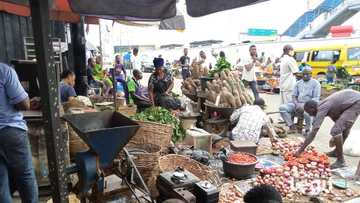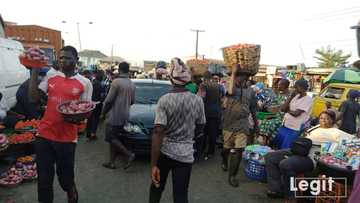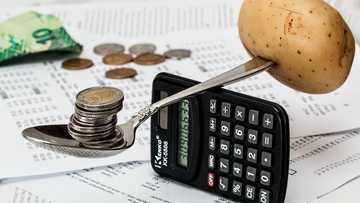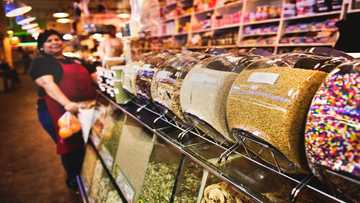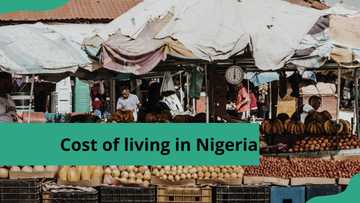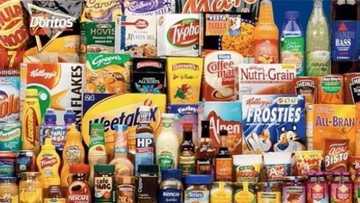Legit.ng weekly price check: Traders reveal patronage level during Easter celebration
- In recent times, there's been fluctuation in the cost price of goods in markets across the country
- According to traders, this affects the purchasing power of buyers as well as the quantity of purchase
- In a chat with Legit.ng this week, traders revealed the level of patronage during Easter and what informed buyers’ choice
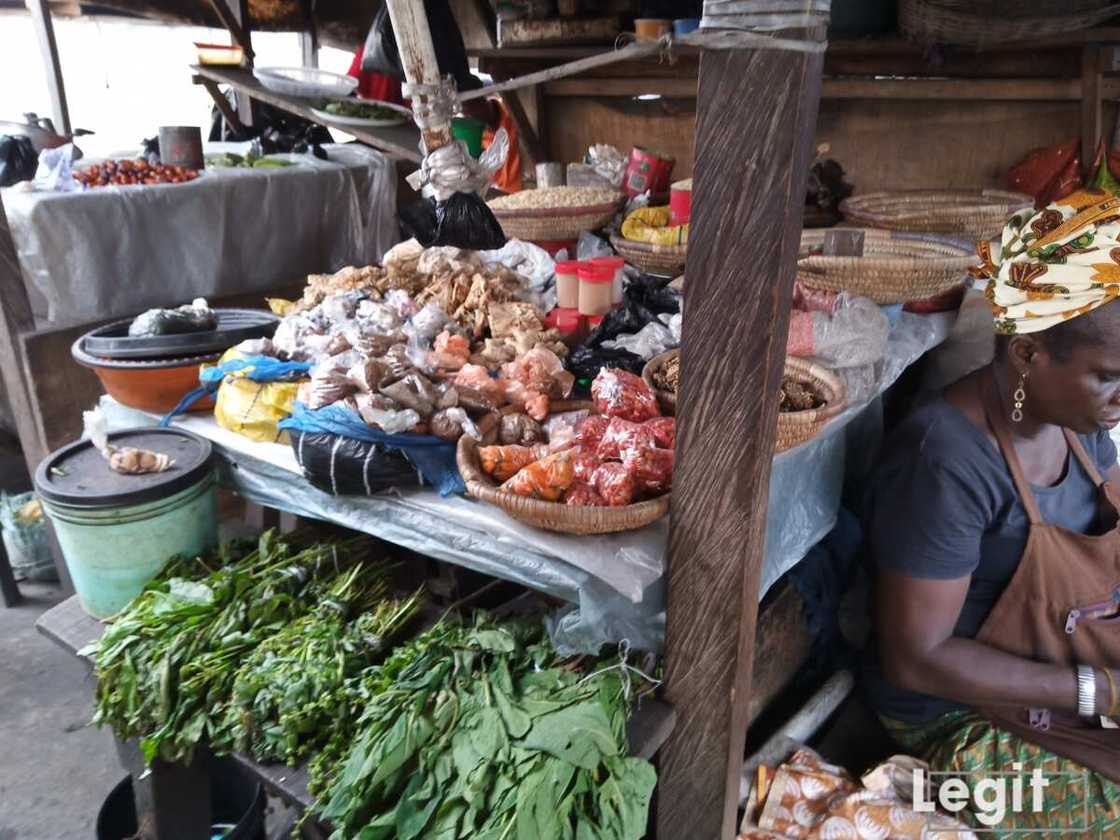
Source: Original
Current happenings in some parts of the country continues to affect business activities in markets across the country. With the rising cases of COVID-19 in some states within the country and insurgency in some region as well, it just tells us that we are far from safety.
The market in recent times, is one that has been in a worrisome state to both the traders and buyers at large. This is so because there is no balance in the supply and availability of goods. It has been a tough time for business owners and consumers during festive periods.
Due to the continuous impact of the pandemic on the nation’s economy, the just concluded Easter celebration was a bleak one. Traders revealed that the purchasing power of buyers dropped lower and the supply of some goods in the market, short.
During festivity, the demand for goods in the market rises, this makes business owners stock up their shop so as to meet up with sales characterized with the season. This season, there were availability of some goods in the market; the goods were affordable and for some, their prices soar further.
Patronage in markets, is often influenced by the season, the availability of major goods and their affordability. In Lagos market, there are goods whose demand and patronage are intertwined; such goods, they top the list of buyers but their supply determines their affordability and availability in the market.
This Easter, provisional items-maintained stability in prices, food items like rice was stable while the cost price of beans and garri increased and foodstuff fluctuate. This did not affect the purchasing power of buyers rather sellers informed that the economy in recent times has impacted largely on patronage.
This week, Legit.ng paid a visit to a major market in Lagos to inquire from traders what informed the choice of buyers and patronage during the Easter celebration.
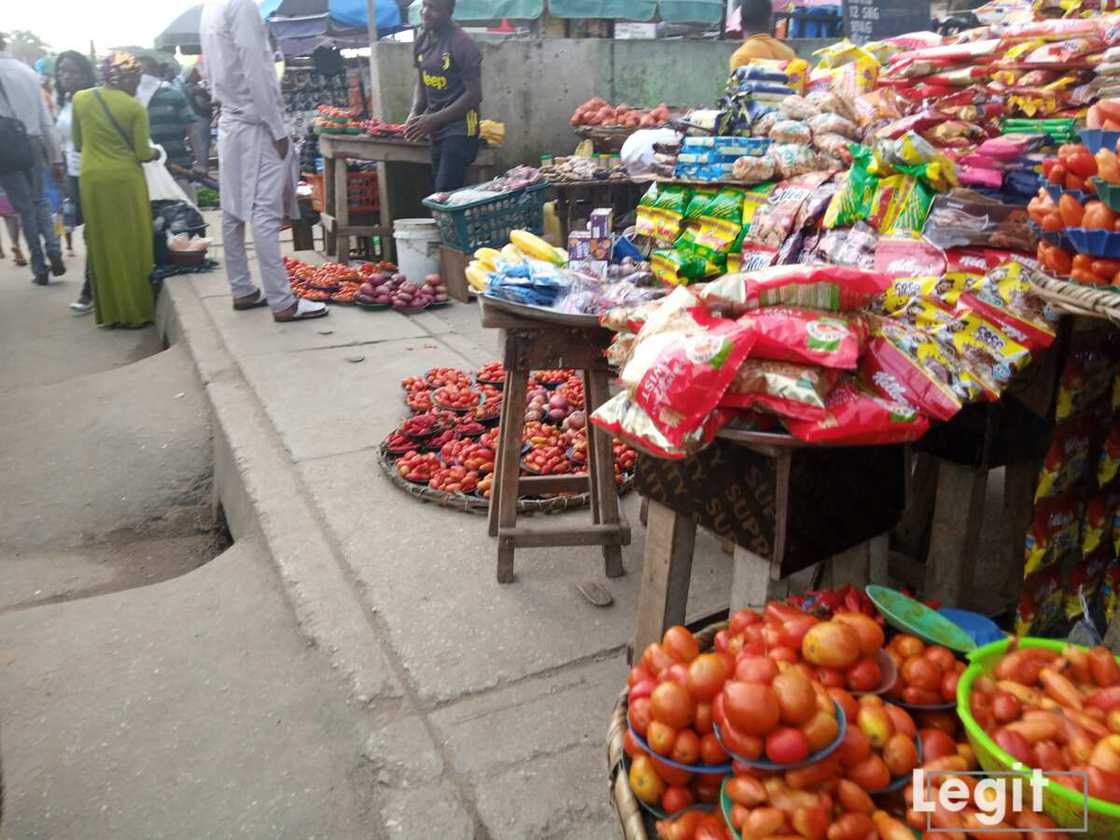
Source: Original
A trader at the market who sells perishable goods told our correspondent that the patronage this Easter was below average. Adding that the quantity of purchase was high but profit level low after daily sales.
She said: “Perishable goods is that one goods that is purchased daily by buyers as it is used to prepare certain meals consumed daily. During festive periods, their demand often rises and their supply depends on the season itself. The sales this Easter was very low and the supply of the goods were a bit high but not too high.
“The patronage before and during Easter this year, has been a dull one because the quantity of purchase by most buyers reduced and some who are into food business like restaurant, canteen and hotels, maintained their usual quantity. So, the amount we make in previous years during Easter dropped because buyers are not purchasing goods in the market in excess; they purchase the goods that they are in need of.
“The cost price of pepper, tomato and onion was at a reduced rate and supply reasonable too, during Easter. Tomato is a bit expensive now, due to Ramadan but pepper and onion are still very affordable. What informs buyers choice is; the cash in hand with affordability and availability of goods in the market.
“The situation we find ourselves in the market this period is one that borders on the sustainability of our businesses because if you purchase goods daily and do not make profit, we then run at a loss which does not help us in anyway considering the nature of the goods we sell; if you don’t sell on time, it gets bad or rotten. This is why we sell at a reasonable price for some time now, so we can get more patronage because most traders in the market here survive on loans as the money is not really flowing from the business as it ought to.”
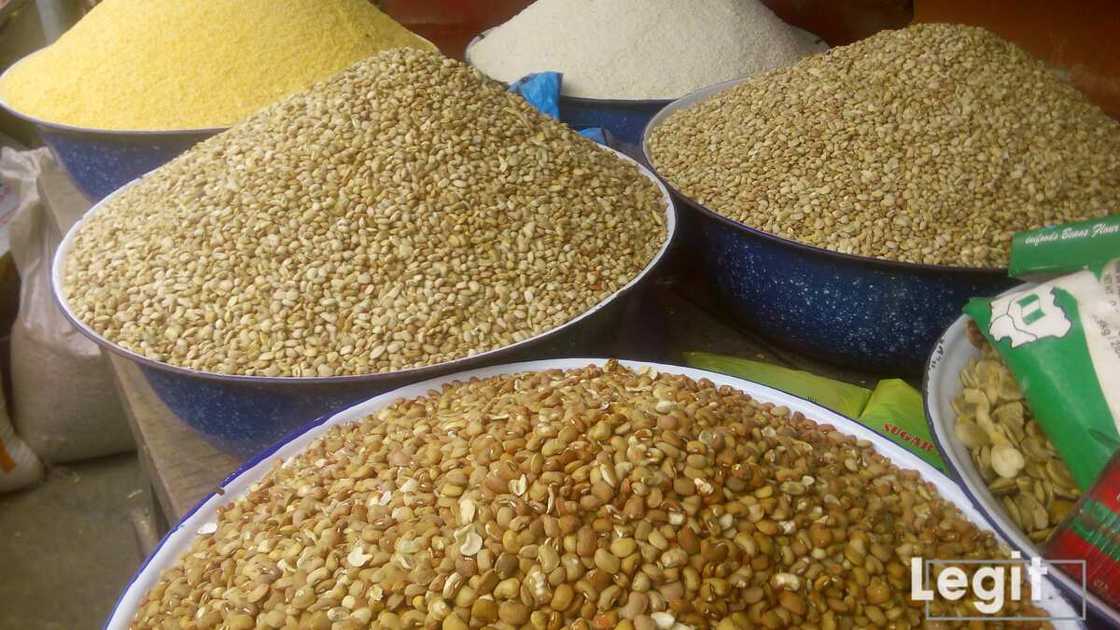
Source: Original
To some, patronage in the market during the Easter celebration is given only when the price variation of goods is fixed; this bring about understanding of the cost price of goods by buyers before visiting the market.
For a food items dealer at the market, the rise and fall of food prices in the market affect the patronage of goods and influences the choice of goods to be purchased by buyers during festive season.
“When the cost price of goods in the market rises and falls daily, the buyers get confused whenever they visit the market to purchase goods while the traders get worried over the cost of purchase and supply of goods.
“This Easter, the cost price of some goods were very affordable but the level of patronage was low because, some buyers came to the market with the thought of the usual rise in cost price of goods` during festivity; unknowingly to them, some of the goods characterized with the season are sold in reasonable prices yet they purchase the goods in low quantity. Patronage was very low during Easter.
“A bag of local rice is sold from N22,000 and below, while for foreign rice, the small one is sold from N23,000 and the long one from N26,000. Garri is expensive due to the issue’s farmers are facing like dry ground, there was no rainfall then, this led to the rise in its cost price of N15,000 and N16,000 but now that its rainy gradually, it has dropped to N13,000. For beans, it maintained stability in prices, a big bag of beans is sold from N55,000 and small bag of oloyin beans cost N25,000.
“Following the confusion attached to the fluctuating price of goods in the market, some buyers often come prepared and others just come with few cash in hand. Patronage for rice was higher than that of beans and garri. This was due to their price variations which led to most buyers purchasing goods like beans and garri at a minimal level during Easter,” A rice dealer informed Legit.ng.
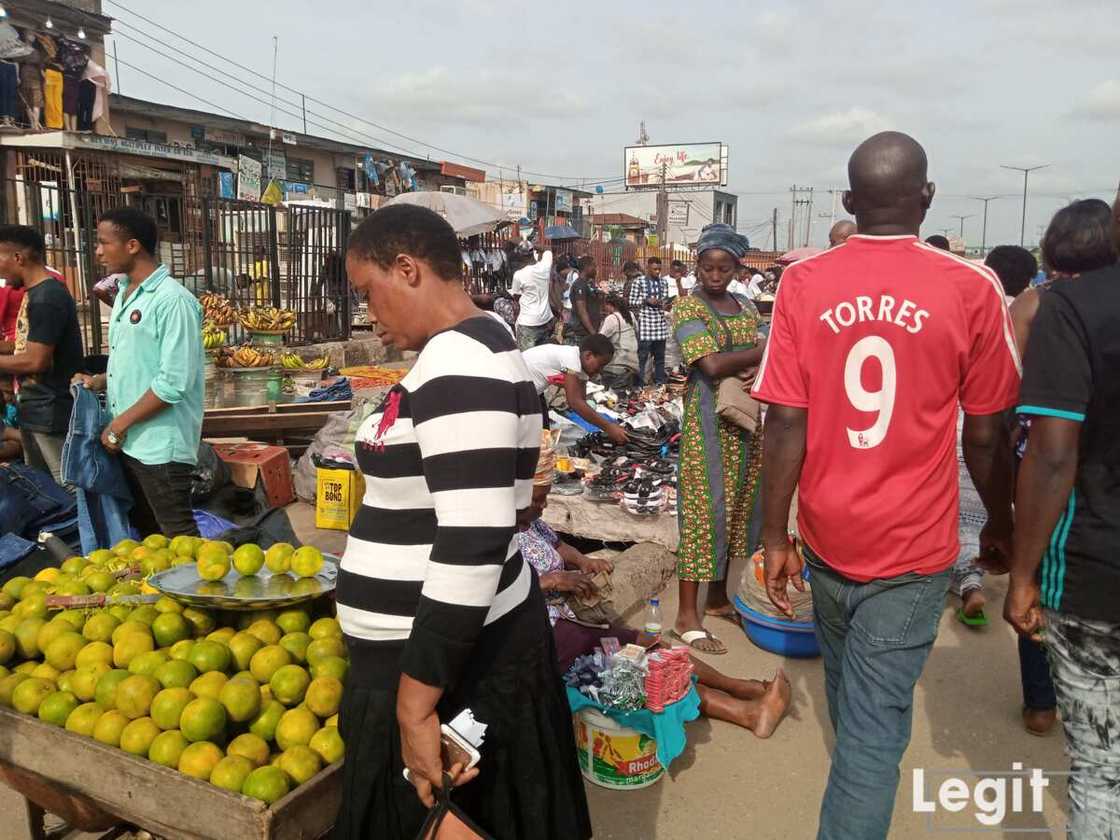
Source: Original
A fruit seller at the market disclosed to our correspondent how high cost of transportation has led to low supply of the goods resulting to increment in cost of purchase and the cost price in the market thereby influencing the patronage level.
Mallam Adamu, a fruit seller at Lugbe market in Abuja, stated thus: “The pandemic has affected us and is still affecting us but the security issues in the country is worsening the activities of business owners in the country. You travel to some state where the goods are purchased and then transported to the market in fear due to the insecurity issues within the country.
“Fruits are purchased from different parts of the country, this inform the cost of purchase and the cost price but more importantly, their patronage determines the quantity of purchase by the traders; if they are too expensive and we purchase less quantity, patronage will be affected and we will sell at a higher rate but if we make good sales and they are affordable, we will purchase in large quantity and sell at a lower rate.
“Some fruits are purchased from the northern region of the country and others from the western region of the country. The ones purchased from the north are expensive than the ones purchased from the south and west. Carrot and watermelon are purchased from the north while pineapple is purchased from Rivers, Port Harcourt but others like banana, oranges and cucumber are purchased from states in the west.
“There was increment in the cost price of carrot before Easter, during Easter and now, this did not affect its patronage level rather it was due to its short supply. But patronage for fruits generally, during Easter was very encouraging and after Easter, it is still encouraging but the only issue we have is the short supply of some fruits into the market.”
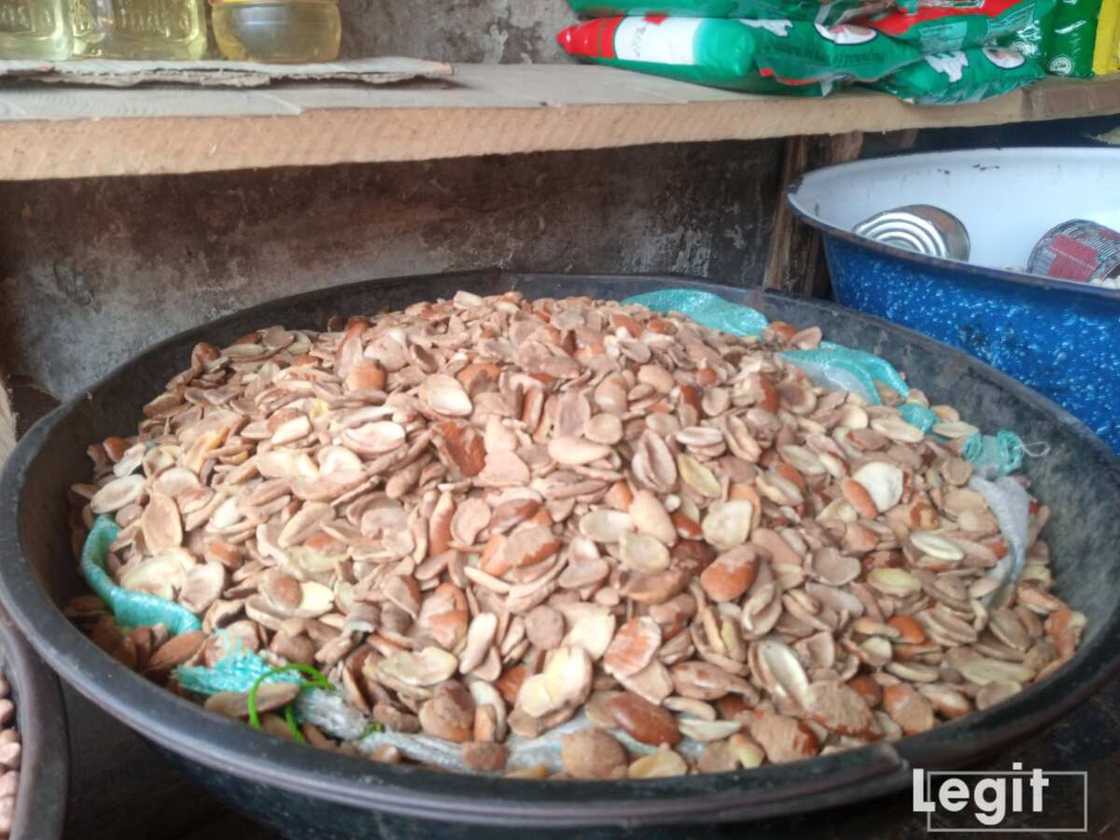
Source: Original
Foodstuff dealers at the market expressed satisfaction over the stability in the cost price of foodstuff items during Easter. A trader in a chat with Legit.ng, did not only explained the level of patronage during Easter he gave a detailed description of foodstuff items in weeks before Easter and during Easter.
“Before Easter celebration, the cost price of foodstuff items was stable and the patronage encouraging. During Easter, the patronage was very low despite the affordability of the items; buyers are lamenting loss of job, unstable income and some, no money in their hand to spend.
“I have tenants in my house, some are owing me rents and these are people who don’t owe before. So, this is the new reality. Buyers are really complaining. They are not finding it easy as some have lost their source of livelihood and the ones doing business are struggling to survive daily.
“Presently, there is increment in the cost price of ogbono and slight increment in the cost price of egusi but crayfish and pepper-maintained stability in prices. A bag of ogbono cost N160,000 as against its old price of N100,000 upwards while a bag of egusi cost N45,000 as against its old price of N40,000 and N39,000.
“A measurement of crayfish cost N14,000 and two measurements cost N28,000 and a bag of dry pepper is sold from N30,000 and N33,000 upwards. It is important to note that, the bigger the size of the bag, the higher the price of the items,” The trader who hailed from the southern region of the country informed.
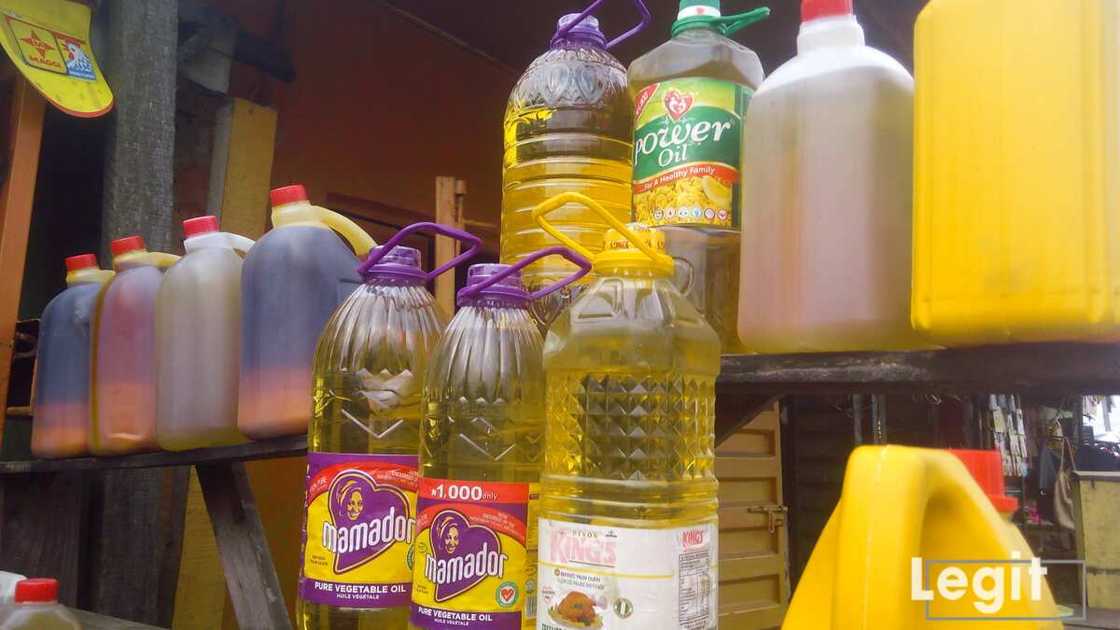
Source: Original
In a similar vein, the cost price of groundnut-oil and palm-oil is still very high at the market. Sellers at the market attributed the rise in their cost of purchase to the pandemic, economy and high cost of transportation.
Ismaila, a trader who sells groundnut-oil in the market, said the increment in the cost price of both items, is not a stable one. Adding that, the government needs to intervene on the economy as this would bring about reasonable prices of goods in the market at large.
He said: “The economy is one major factor that inflates the cost price of goods in the market. When the economy is fixed, everything would fall in place. Every single item in the market, is expensive. It is that bad. Surprisingly, their increment fluctuates.
“The cost price of oil was very high before the celebration; and during the celebration, the cost price was stable. A 25-litre of groundnut-oil that cost N19,000 before, now sells from N18,500 while a 25-litre of palm-oil that cost N20,000 before, now sells from N14,500. This affected the patronage level as most buyers opt for the cheaper oil, palm-oil to groundnut-oil. The branded groundnut-oil are more expensive than the refill because they are of good quality and are healthy too.
“We did not make better sales this Easter and it was expected because most of our customers who patronize us, purchase in fewer quantity even before the celebration and some whose family resides in the village, purchase the oil from neighbouring states and transport it at a cheaper rate to Lagos by road. The ones that usually purchase gallon, go for half gallon and the ones that purchase half end up buying 5-litre of oil, it is pathetic. There is suffering in the land, the government should please help us and make the economy better. Life is very hard now as the cost of living is high, survival is way higher.”
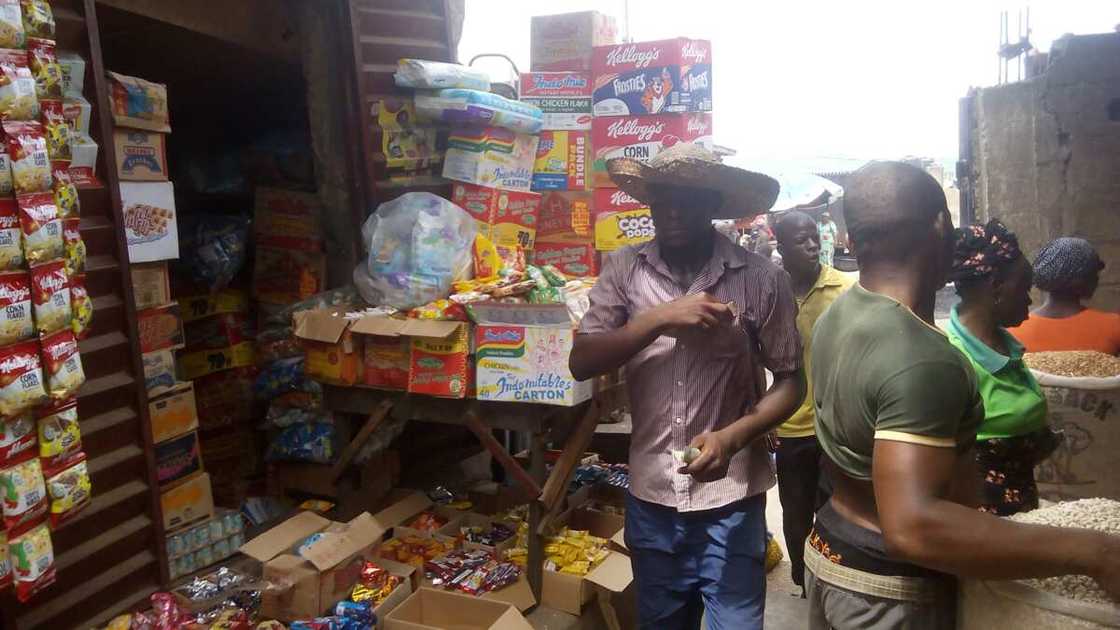
Source: UGC
While most business owners are yet to recover from the dire effect of the pandemic on their businesses, others selling goods like provisional items, drinks and Covid-19 related items are cashing out as informed by traders in the market.
“There was stability in the cost price of provisional items; only items like dairy milk, flakes and cereals fluctuate. Items like bar soap and detergent maintained stability in prices. For body cream, their items fluctuate. But the brand of these items informed their cost price. The more popular the brand, the higher their cost price, especially brands that are known for quality items.
“During Easter celebration, the patronage was good as buyers cannot do without the items. It is very important for their daily activity. So, we make sales daily and we are hopeful of better sales ahead of the Ramadan,” A provisional items seller opined.
In other news, health experts intensify efforts to make the COVID-19 vaccine accessible and accepted in the country thereby urged Nigerians to get a jab of the vaccine.
INTERVIEW: We are hungry - Traders lament on hiked prices of goods via Legit TV
Source: Legit.ng

